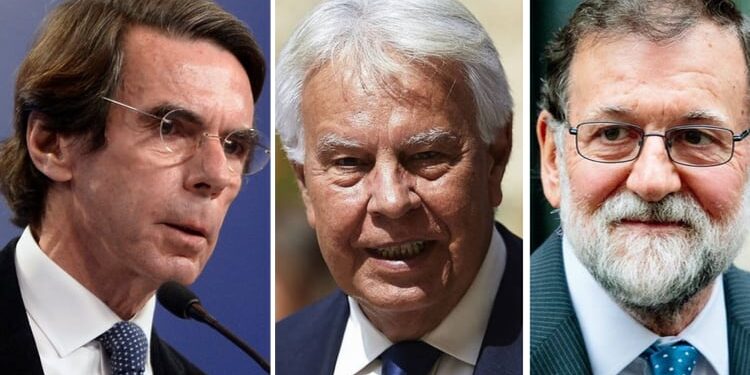The Diplomat
All the former Spanish Prime Ministers – with the exception of José Luis Rodríguez Zapatero – have signed a document, together with thirty former Ibero-American leaders, in which they ask the International Criminal Court to arrest the president of Venezuela, Nicolás Maduro.
The document is signed by Felipe González, José María Aznar and Mariano Rajoy and former presidents such as Óscar Arias (Costa Rica), Felipe Calderón and Vicente Fox (Mexico), Iván Duque and Andrés Pastrana (Colombia), Eduardo Frei (Chile), Mauricio Macri (Argentina), Lenín Moreno (Ecuador) or Julio María Sanguinetti (Uruguay).
The text was delivered by Andrés Pastrana in The Hague, the seat of the ICC, on behalf of the Democratic Initiative of Spain and the Americas (IDEA-Democratic), which has decided to act out of a “moral duty” and “democratic convictions.”
The signatories denounce that Venezuela is “a repressive military state” that exercises “state terrorism,” Pastrana explained in a video posted on social media.
Pastrana advocated for the “urgent intervention” of the chief prosecutor of the ICC, Karim Khan, to request the arrest of the main Chavista leaders, including Maduro and Diosdado Cabello, the new Minister of the Interior and one of the strong men of the Bolivarian regime.
The document points directly to those mentioned and to the “chain of command” that orchestrates and allows human rights violations in Venezuela, after an electoral process full of shadows, at the end of which Maduro declared himself the winner, contrary to what the opposition claims and without presenting the electoral records, as the international community has been demanding.
The ICC Prosecutor’s Office already opened a preliminary investigation in 2021 into possible abuses in Venezuela following a request from a group of Ibero American countries.
Venezuela ratified the Rome Statute in June 2000, so theoretically it should submit to the sovereignty of the court. The Maduro government, however, has questioned the open investigations in recent years, claiming among other things that there have been no widespread abuses and that there are accountability procedures already underway in the South American country.







